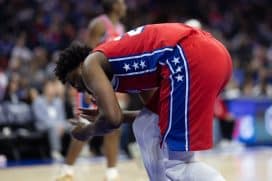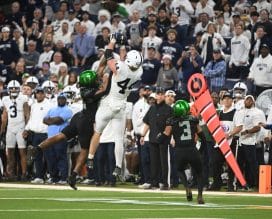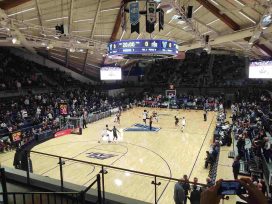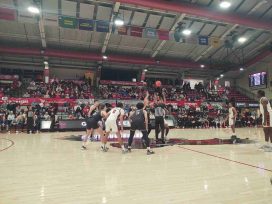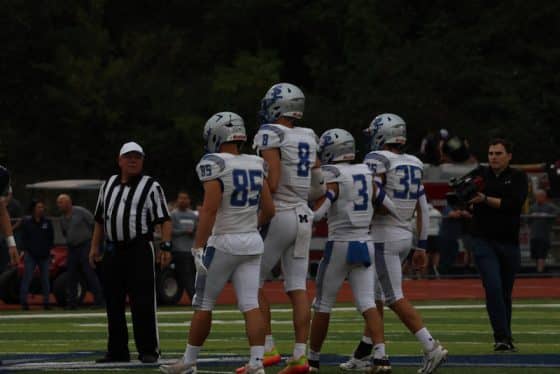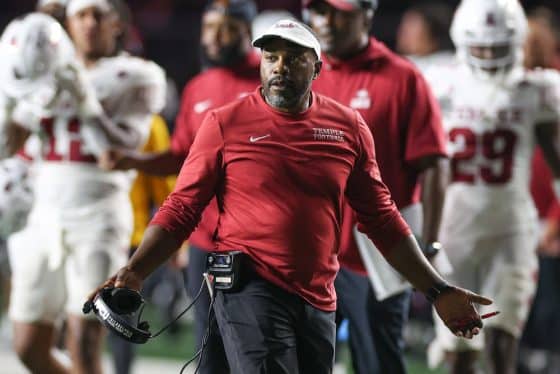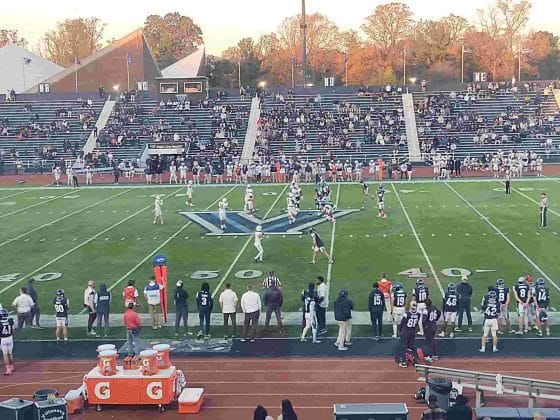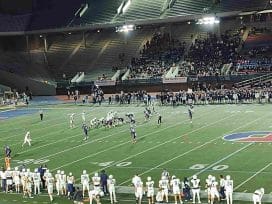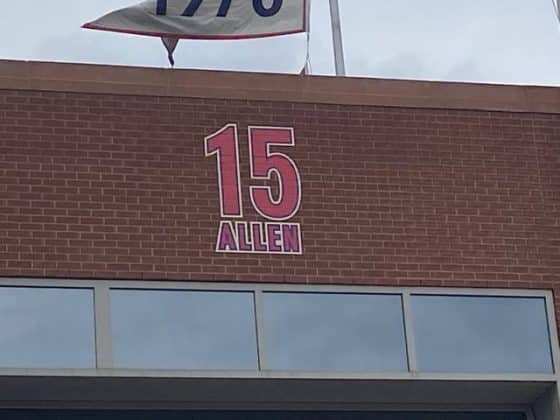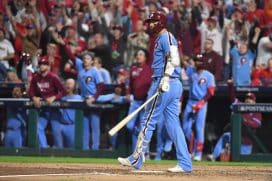Flyers
Mixed Messages from Tortorella, Fletcher on Flyers Path Forward

If there’s been a bright spot in this Flyers season, it’s been John Tortorella. The new Flyers head coach is 24 games into his tenure behind the Flyers bench and has already endured a strong 7-3-2 start and a 10-game losing streak, and that’s only through the first quarter of the season.
Through it all, Tortorella’s mindset has not wavered. He’s focused on the big picture. The season has never been about wins and losses, playoffs, or point totals. It’s about establishing an identity and finding out who is in this for the long haul and who is not.
So far, the Flyers are starting to achieve that goal. Despite the run of losses, the team has seen the overall process improve slightly and have been more competitive in games. GM Chuck Fletcher agrees that the last handful of games have been better, results aside.
“By bringing in Torts, it was about re-establishing how we want to play. How we want to work, defend. We felt that was really critical to fix,” Fletcher said Thursday. “We’ve gone about that. We’re starting to see some progress in that regard.
“I don’t think anybody anticipates a 10-game winless streak. Now we’re getting a few players back. The last two games against the Islanders, two of our best defensive games by far. We defended well against a good Islanders team.”
But that’s where the vision of the future gets cloudy between sources. Ask Tortorella, and you get a variety of analogies. This week alone, Tortorella has talked about having to “eat it” in terms of not being respected around the league based on results. He compared Morgan Frost’s up-and-down performance to a toilet seat. And on Thursday, he didn’t mince words about the duration of building a contender.
“This team needs to be built,” Tortorella said prior to Thursday’s game. “It needs to be built from the footers. We’re not even in the foundation, we’re at the footer position as far as I’m concerned.”
It may seem like a situation different from what Tortorella signed up for when taking the coaching job. He re-affirmed that is not the case, that he embraces the opportunity to build the team into what it can be, but was firm that there is a right way to do it.
“We’re going to feel more pain. We’re going to go through a lot of pain. When you start feeling that pain, do you change your thinking and panic and readjust how you’re going to go about it? That’s the important part for us in this organization is just stay with it,” Tortorella said. “No matter how much pain you’re going through, stay with it. Because when you get on the other side, that foundation is going to be strong.”
As tensions mount in terms of the front office and their standing within the organization, especially after a failed offseason approach of “aggressively retooling,” there seems to be a language barrier regarding the path of the team. Neither Tortorella nor Fletcher will use the “R” word, but Tortorella at least presents a mindset that aligns with rebuilding by focusing on building from the ground up. As long as both sides show a disconnect in the process, there will be very little progress moving forward.
Fletcher, who once again acknowledged the injuries that may be holding back the team’s full potential, focused on the standings picture and if the Flyers can stay in the running.
“We’re five points out of a wild card,” Fletcher said. “We’ll see if we have the capability of staying in that race and competing. There’s a path forward here to be more competitive and I expect to be more competitive the rest of the way. But I do expect us to continue to defend well, continue to compete and continue to be a hard team to play against.”
Of course, just hours after saying that, the deficit to the final wild card spot became six points following a 4-1 loss to Tampa Bay and a Pittsburgh win to move past idle Detroit in the standings.
That’s quite the contrary from what Tortorella focused on, lasting through the pain to emerge on the other side. He discussed the first steps of this, determining who has a place within the organization in the future, and noting the conversations being had between the coaching staff and management regarding building a team.
“Those are discussions we’re having now. Chuck and I and the whole organization are having conversations on what we feel forecast for [what a player is],” Tortorella said. “That’s not my job. I’m not trying to overstep my bounds here. That’s Chuck’s job to forecast his contracts, how many contracts we can keep, what is left on [a player’s]. I just need to give him the honest information I have as the head coach of the team as far as what I see. Is he part of this or do we want him part of it or he’s not a Flyer? You work through it.
“This isn’t a one-year type of thing. We’ve got some work to do. And it’s going to take some time, no matter what people want to hear. If we want to get it right, it’s going to take some time.”
Fletcher also acknowledged that there remains a lot of work to do, but still seems to have an eye on the present while focusing on the future. Even if nobody within the organization will use the rebuilding term, Tortorella seems to get that the patchwork approach and sideshows of the game experience won’t cut it in winning over a fan base that has largely tuned out the team.
“I’m not a big language guy. I like building. I like using building words. I’m thrilled I have the opportunity to help there. As far as language, you can call it whatever the hell you want,” Tortorella said. “I know how this coaching staff is going to go about it. I feel very strongly, you just get stuck in the mud if you continue to put band-aids on, and gimmicks to get people in the building, and whatever it is. You get people in the building and you get it right by winning, and the only way you can win is by building it the proper way, and that’s how we’re going to go about it.”

